Research Areas
Optical Spectroscopy Computing
 |
This project is focused on the exploration of optical spectroscopy technologies for the purposes of health assessment and disease diagnosis. Specifically, it examines the viability and effectiveness of Laser Induced Breakdown Spectroscopy (LIBS) for the analysis of blood plasma, with the objective of identifying markers for infectious diseases, dementia, and Gulf War syndrome. Concurrently, the study extends to the utilization of laser spectrophotometry for the spectroscopic examination of sweat as a medium for health analytics and development. Furthermore, an effort is being made to miniaturize laser spectrophotometers to facilitate the continuous, non-invasive monitoring of health vitals and blood pathology, thereby providing a real-time assessment of human health. In addition to these technological advancements, the project is dedicated to the innovation of novel deep learning algorithms and advanced signal processing methodologies to enhance the accuracy and efficiency of disease diagnosis based on spectroscopy data.. |
Electronic Health Records Computing
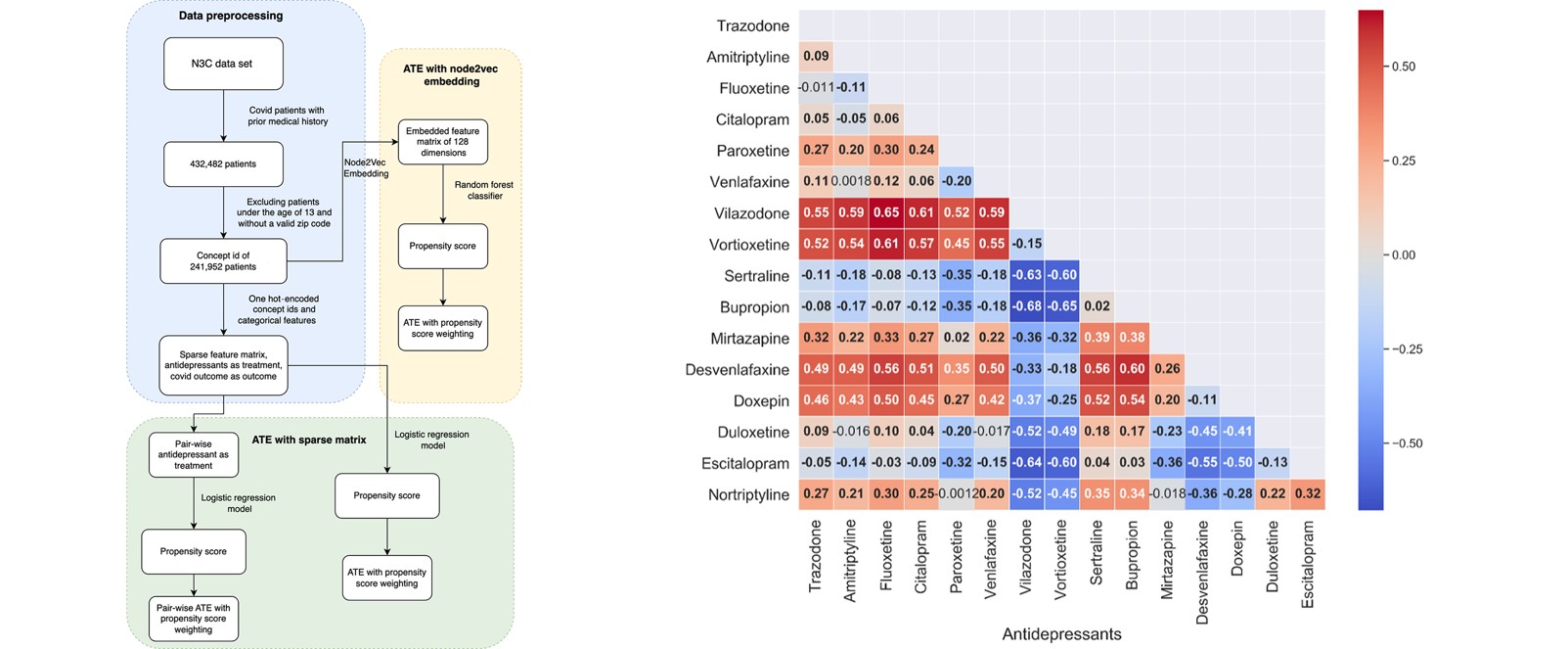 |
In the context of this research initiative, the objective is to devise and implement sophisticated embedding methodologies for both unstructured and structured Electronic Health Records (EHRs) to facilitate the identification of clinical patterns, socio-practical determinants, and potential biomarkers conducive to forecasting Alzheimer's disease, adverse drug reactions, opioid misuse, and discovering viable repurposing strategies to mitigate such outcomes. To achieve this, the project endeavors to engineer advanced deep learning architectures, leverage transfer learning techniques, and employ causal inference frameworks to construct explainable and equitable predictive models. In this endeavor, we harness data from several prominent repositories, including the National Covid Collaborative Cohort (N3C), NIH All Of Us Research Enclave, IBM Truven MarketScan claims datasets, and the publicly available Medical Information Mart for Intensive Care IV (MIMIC-IV) datasets. Beyond the formulation of novel predictive algorithms, this project aims to deploy the developed models within real-time hospital environments to ascertain tangible benefits for clinicians. Currently, collaborations are in place with Holy Family Methuen and UMass Memorial Medical Center for the practical application of these advanced systems. |
Wearable Sensor Computing
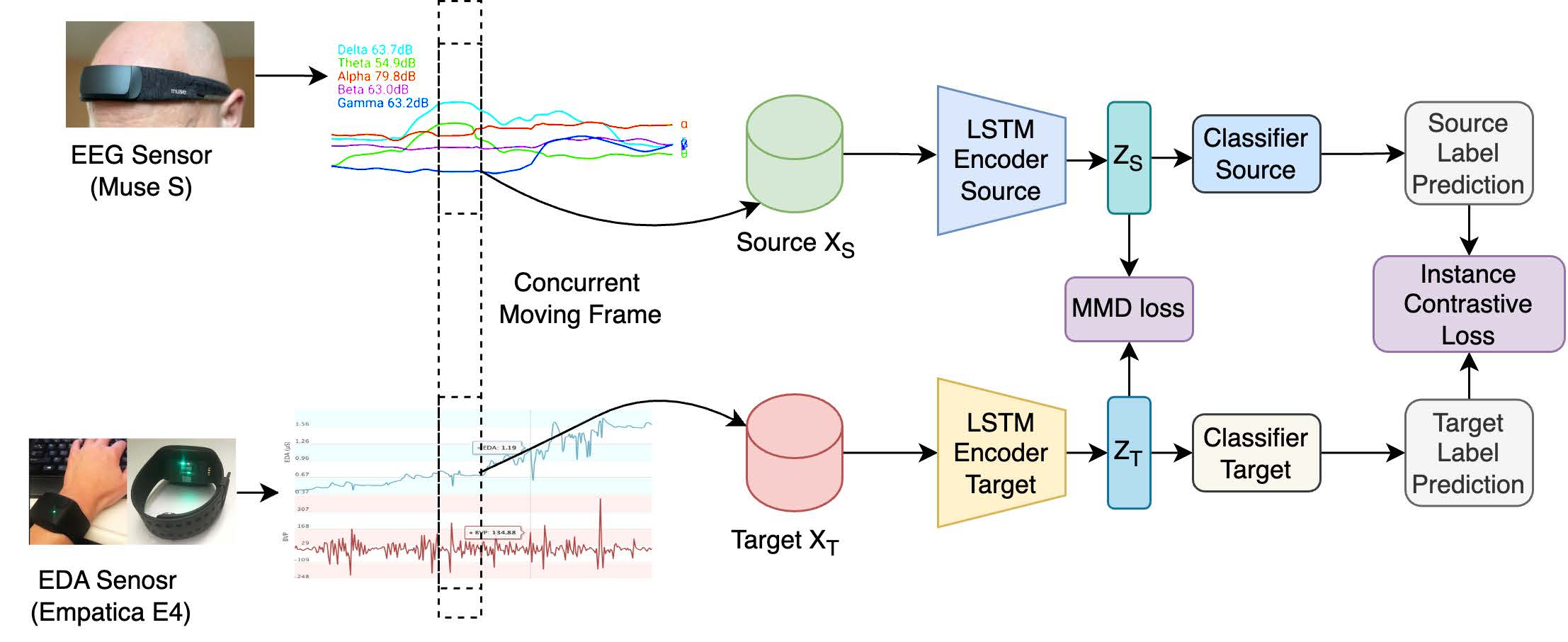 |
In this research endeavor, we engineer advanced deep learning methodologies to enhance the capability of wearable sensor signal analysis for health vital tracking and evaluation. Our approach employs edge computing-based intelligent technologies to create models that offer clinically interpretable assessments for a variety of health-related conditions. Specifically, we focus on the development of models for physician burnout detection, mobile device usage dependency forecasting, adverse vaccine response anticipation, post-operative pain estimation, geriatric mobility tracking, cognitive health surveillance in the elderly, student hydration status monitoring, blood glucose level approximation, and occupational stress and fatigue prediction. Furthermore, we are exploring the utilization of wearable sensor data representation learning techniques and the advancement of generative artificial intelligence frameworks. This initiative aims to facilitate the provision of pre-trained models that can be easily adapted through transfer learning for the analysis of wearable sensor data in additional health evaluation contexts. |
Smart and Connected Community Engaged Water Contamination Prediction
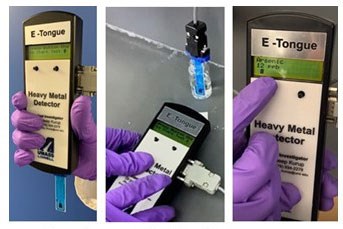 |
In this SCC project, the investigators will deploy citizen-scientist-operated electrochemical electronic tongue (E-Tongue) devices for rapid, onsite, water quality testing of contaminants such as lead and arsenic, develop a user-friendly app and cloud-computing platform for data analysis, and foster shared learning and collaboration among community stakeholders to build social cohesion and trust in water testing technologies and the local authorities. Furthermore, this work will develop spatiotemporal machine learning algorithms and a cloud-computing platform that will take the responses from the individual E-Tongue devices and produce predictions of contaminant type, concentration, probable source, and extent of the contamination. This information will be used to quickly notify the public health authorities for intervention and alert affected residents to take appropriate actions. Affected residents will also be alerted to take appropriate actions, and water utility managers will be informed to enable them to adjust water treatment processes and make infrastructure upgrades. Our project will be initially piloted in socioeconomically diverse communities of Lowell, Lawrence, Dracut, and Andover in the Merrimack Valley. Given that drinking water contamination and exposure occurs disproportionately in socioeconomically disadvantaged communities with older infrastructure, we hope our work will empower such communities to use data to advocate for remediation efforts. We believe that frequent community-engaged monitoring of drinking water quality and taking appropriate and timely actions will have a profound effect in protecting the health, the environment, and drinking water infrastructure in the Merrimack community. Partnership with our community stakeholders and elected leaders will ensure that our project is sustainable, scalable, and transferable to other communities in our country and the world. |
Educational Data Mining for Mental health
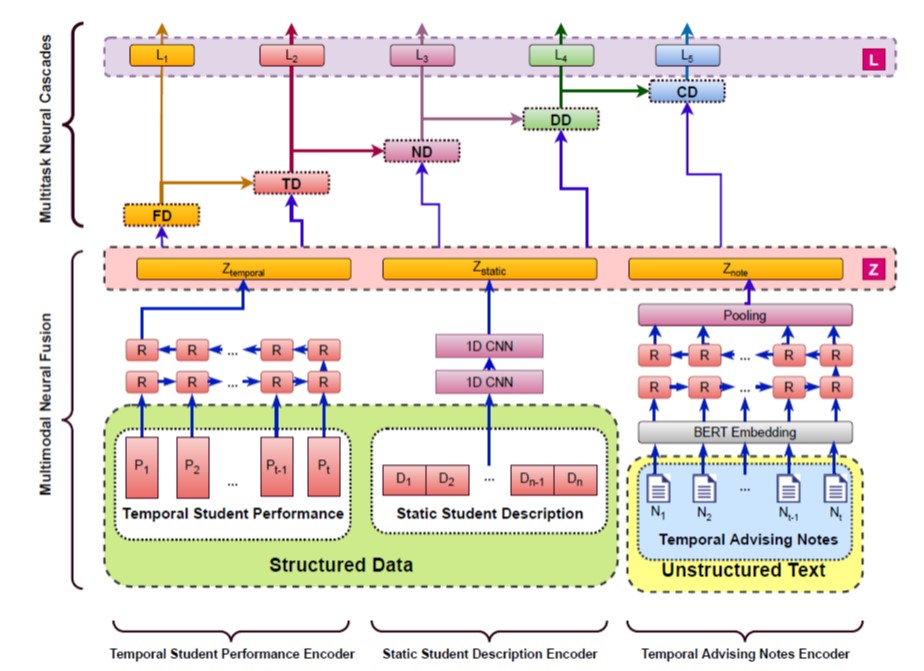 |
This project involves a collaborative effort with LivedX, a firm specializing in educational data mining, to harness extensive datasets comprising students' experiential narratives captured in their day-to-day activities, which are securely housed on dedicated servers. The objective is to design and implement a sophisticated Natural Language Processing framework, alongside developing an equitable, interpretable predictive modeling approach for the assessment of mental health statuses and the estimation of attrition risks. Furthermore, the project aims to pioneer advanced methodologies in information retrieval and deep learning, focusing on the identification of novel mental health biomarkers through the integration of active learning strategies, graph neural networks, and reinforcement learning algorithms to ensure the prediction model's robustness, efficiency, and sustainability. Beyond the scope of predictive modeling, the initiative also encompasses the creation of high-performance software solutions dedicated to the visualization, monitoring, and intervention of identified issues among students to facilitate their academic progression and well-being. |
Mobile and Cloud Computing
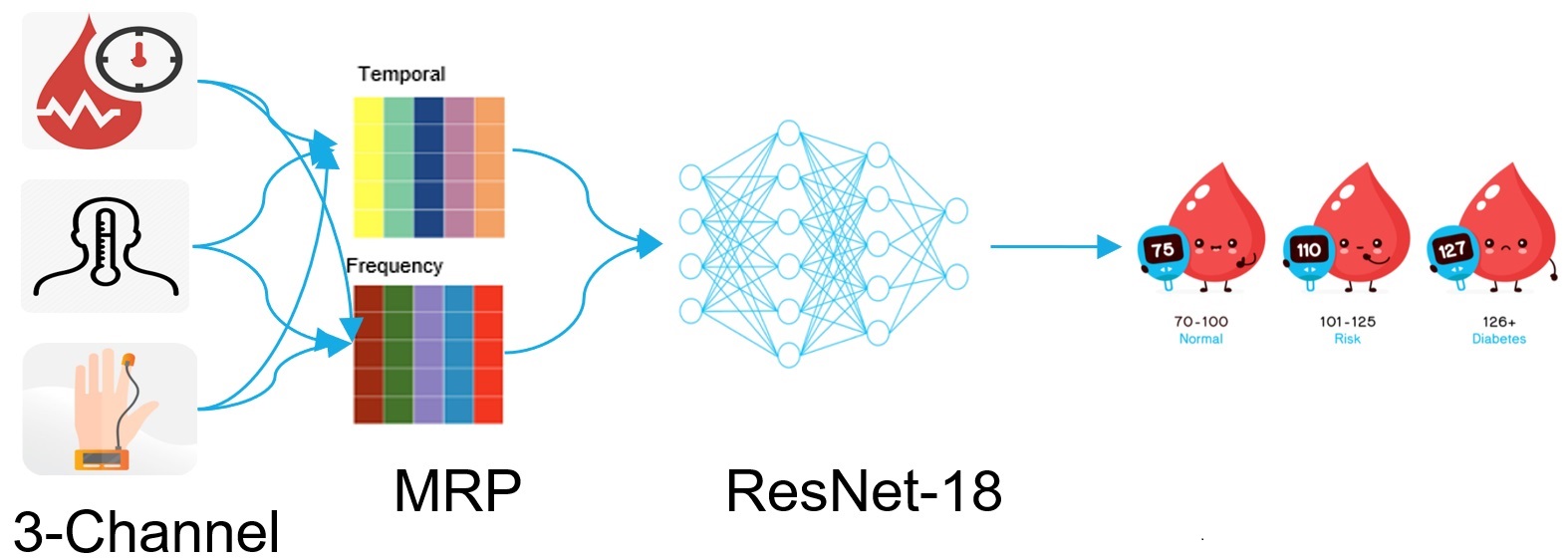 |
In this project, we are developing a sophisticated mobile and cloud computing platform, leveraging the principles of distributed and edge computing algorithms, specifically tailored for sleep monitoring and infant health tracking. A key innovation in our approach is the integration of a nuanced, user-friendly language for notifications, crafted in collaboration with linguistics experts. This design not only facilitates a deeper understanding of the predictive models employed but also aims to motivate users towards positive changes in social behavior and daily habits. Furthermore, the platform is engineered to deliver timely notifications, ensuring a user experience that is both lightweight and privacy-centric, thereby augmenting the trustworthiness of the computing environment. In addition to the software innovations, the project also focuses on the development of novel hardware solutions, including portable T-shirts and sleep-tracking mats. These products are designed to seamlessly integrate into daily life, offering an unobtrusive technology adoption pathway. The goal is to enable users to leverage advanced health monitoring technologies without feeling overwhelmed or intimidated, thereby fostering widespread acceptance and use.. |
FATE: Fairness, Accountability, Transparency, and Ethics in Health Informatics
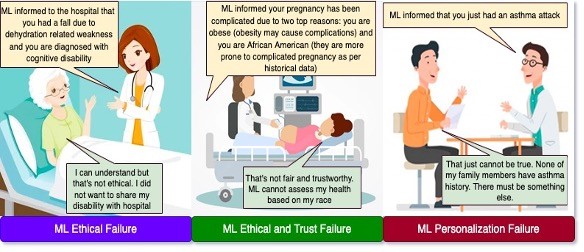 |
In this research initiative, we aim to engineer an advanced predictive model within the domain of Health Informatics, designated as FATE (Fair, Accountable, Transparent, and Ethical). This endeavor encompasses the integration of sophisticated bias identification and rectification methodologies, the development of interpretable Artificial Intelligence (AI) mechanisms for health evaluation, the preservation of privacy within health AI systems, and the facilitation of causal analysis in predictions to elucidate the underlying reasons, collectively establishing a robust framework for responsible AI. The application spectrum of the proposed algorithms extends across various computing paradigms, including wearable technologies, mobile platforms, cloud computing, distributed systems, and Natural Language Processing (NLP) challenges. In pursuit of optimizing these algorithms, we engage in the utilization of established benchmark datasets and the procurement of proprietary datasets to ascertain the algorithms' performance. Furthermore, the project integrates the "Trust Loop" framework, which serves to verify the effectiveness, practicality, and reliability of the developed framework through the lens of community-engaged citizen science approaches. |